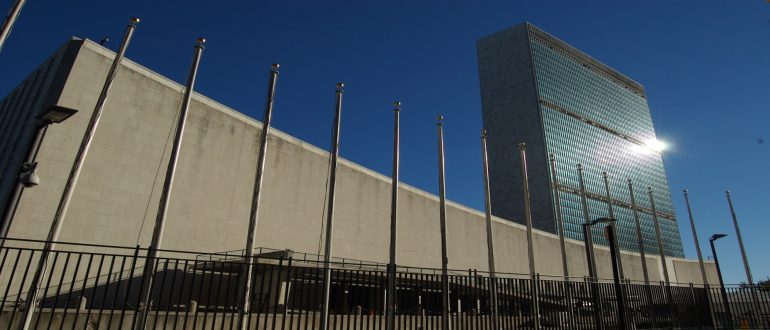
Historic cooperation: France and Germany to share their presidencies in the UN Security Council
For the first time in the history of the United Nations (UN), two states share their presidencies in the Security Council. As France will take over the presidency from Equatorial Guinea in March and subsequently Germany in April, the two EU member states have decided to share the presidency’s responsibilities throughout the 8 weeks. The Permanent Representative of Germany to the UN, Christoph Heusgen, calls the partnership between the permanent member France and the recently elected non-permanent member Germany a “Jumelage”, referring to the French word for town twinning.
In times of spreading national isolation on a political and economic level, the new approach of a joint presidency takes a stand both for multilateralism and a common voice of the EU. With regard to the French-German history, which was once characterized by rivalry and wars that were one reason for the foundation of the United Nations in 1945, the “Jumelage” is widely perceived as a historic moment.
According to the Provisional Rules of Procedure of the Security Council and Art. 30 of the UN Charter, the role of the presidency includes: approving the agenda, calling and presiding over the meetings, representing the organ and issuing presidential statements and notes, which can pave the way for consensual decisions by the 15 members.
The cooperation is based on the Treaty on Franco-German Cooperation and Integration (Aachen Treaty), which was signed by President Macron and Chancellor Merkel in Aachen on the 56th anniversary of the Elysée Treaty on 22 January 2019. Chapter 2 stipulates a closer cooperation in the areas of defense, security and diplomacy.
The foreign ministers of France and Germany, Jean-Yves Le Drian and Heiko Maas, presented their common agenda for the next two months, focusing on the fight against terrorism and arms trade, the protection and empowerment of women in conflict situations, the strengthening of International Humanitarian Law, and support for peacekeeping operations, particularly in Mali and the Sahel region, where both France and Germany have deployed military forces within the framework of UN’s MINUSMA peacekeeping mission.
Despite the demonstrated unity, the composition of the UN Security Council recently lead to a controversy between the two states, when German vice-chancellor Olaf Scholz urged France to give up its seat to turn it into a common EU seat, which was immediately rejected by French officials. One reason for that controversy is the outdated and almost unchangeable structure of the UN Security Council. A restructuring of the organ would require an amendment to Chapter V of the UN Charter, which can be achieved only under the conditions stipulated by Art. 108 UN Charter, i.e. a ratification by two thirds of the members of the UN, including all permanent members of the Security Council. It seems rather unlikely that all five permanent members would approve an amendment that would weaken their own status, e.g. by waiving their veto power or by admitting more permanent members to the Council. However, the present composition – dating back to 1945 – does not reflect the current power structure of international politics, which is shaped also by other actors, such as Japan, Canada and Germany as well as newly industrialized countries like Brazil, Mexico, India, Indonesia or South Africa. Thus, the project not only of an EU seat, but an appropriate reform of the Security Council in general – as foreseen in the Treaty of Aachen – will remain one of the most complicated challenges for the “Jumelage” within the UN system.

